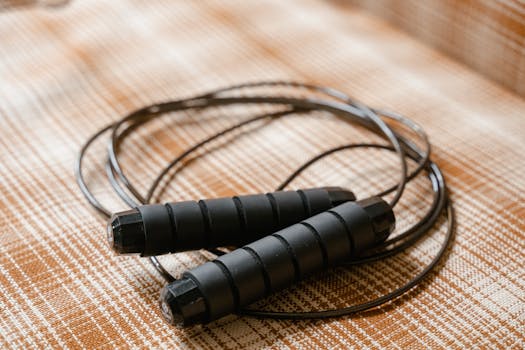Does Melatonin Break a Fast? Sleep Supplements & Fasting
Sep 18, 2024
In the realm of health and wellness, intermittent fasting has gained significant traction as a strategy for weight loss and overall well-being. Simultaneously, many people struggle with sleep issues and turn to supplements like melatonin for help. This intersection raises an important question: does melatonin break a fast? At Getlila, we're dedicated to helping you navigate the complexities of nutrition, fasting, and overall health. Let's delve into this topic and explore the impact of melatonin on your fasting goals.
Understanding Melatonin and Fasting
Before we address whether melatonin breaks a fast, it's crucial to understand what melatonin is and how fasting works.
What is Melatonin?
Melatonin is a hormone naturally produced by the pineal gland in the brain. It plays a crucial role in regulating our sleep-wake cycle, also known as the circadian rhythm. As a supplement, melatonin is widely used to help with sleep issues, jet lag, and shift work adjustments.
Key points about melatonin:
Hormone naturally produced in the body
Available as an over-the-counter supplement
Typically comes in pill, gummy, or liquid form
Doses usually range from 0.5 to 10 mg
What is Fasting?
Fasting involves abstaining from food (and sometimes beverages) for a specific period. Intermittent fasting, a popular approach, alternates between periods of eating and fasting. Common fasting methods include:
Time-restricted feeding (e.g., 16/8 method)
Alternate-day fasting
5:2 diet
Extended fasting (24 hours or more)
The primary goals of fasting can include:
Weight loss
Improved insulin sensitivity
Cellular repair (autophagy)
Reduced inflammation
Better mental clarity

The Science Behind Melatonin and Fasting
To determine whether melatonin breaks a fast, we need to understand how it affects the body, particularly in relation to the mechanisms of fasting.
How Melatonin Works in the Body
Melatonin is primarily known for its role in sleep regulation, but it also has other effects on the body:
Sleep Regulation: Melatonin helps signal to the body that it's time to sleep.
Antioxidant Properties: It acts as an antioxidant, potentially protecting cells from damage.
Immune System Support: Some studies suggest melatonin may enhance immune function.
Blood Sugar Regulation: Melatonin may play a role in glucose metabolism.
How Fasting Affects the Body
During fasting, several metabolic changes occur:
Decreased insulin levels
Increased human growth hormone (HGH)
Enhanced fat burning
Cellular repair processes (autophagy)
Improved insulin sensitivity
Does Melatonin Break a Fast?
The short answer: In most cases, melatonin does not break a fast.
Here's why:
Calorie Content: Most melatonin supplements contain negligible calories, typically less than 1 calorie per dose.
Insulin Response: Melatonin doesn't trigger a significant insulin response, which is a key factor in maintaining a fasted state.
Metabolic Impact: Melatonin doesn't interfere with the metabolic processes that occur during fasting, such as fat burning and autophagy.
Supplement Form: Pure melatonin supplements (without added sugars or fillers) are unlikely to impact your fasting state.
However, there are some considerations:
Gummy Forms: Some melatonin gummies contain small amounts of sugar or carbohydrates. While the calorie content is usually minimal, strict fasting purists might choose to avoid these.
Individual Responses: As with many aspects of health, individual responses can vary. Some people might be more sensitive to any supplement intake during fasting.
Fasting Goals: The impact of melatonin might vary depending on your specific fasting goals (e.g., weight loss vs. autophagy).
The Impact of Melatonin on Fasting Goals
Let's break down how melatonin might affect different fasting objectives:
Weight Loss: For those fasting primarily for weight loss, melatonin is unlikely to hinder your progress. The calorie content is negligible, and it doesn't significantly impact metabolism.
Metabolic Health: Melatonin doesn't negatively affect insulin sensitivity or blood sugar control. In fact, some studies suggest it might have beneficial effects on metabolic health.
Autophagy: Current research doesn't indicate that melatonin interferes with autophagy. It may even enhance some cellular repair processes.
Circadian Rhythm: Melatonin can help regulate sleep patterns, which is crucial for overall health and can indirectly support fasting goals by improving sleep quality.
Melatonin and Sleep Quality During Fasting
Quality sleep is crucial for overall health and can significantly impact the success of your fasting routine. Here's how melatonin can play a role:
Improved Sleep Quality: Melatonin can help you fall asleep faster and improve overall sleep quality, which is essential for hormonal balance and metabolic health.
Reduced Sleep Disruptions: Fasting can sometimes disrupt sleep patterns. Melatonin may help mitigate these effects.
Stress Reduction: Better sleep can lead to reduced stress levels, which is beneficial for maintaining a consistent fasting routine.
Hunger Management: Adequate sleep is crucial for managing hunger hormones, potentially making fasting easier to adhere to.
How to Use Melatonin While Fasting
If you choose to use melatonin during your fasting periods, consider these tips:
Opt for Pure Supplements: Choose melatonin supplements without added sugars, fillers, or calories.
Timing: Take melatonin 30 minutes to an hour before your intended sleep time.
Start with Low Doses: Begin with the lowest effective dose (typically 0.5-1 mg) and increase if needed.
Consider Your Fasting Schedule: If you're concerned about any potential impact, you can time your melatonin intake to align with your eating window.
Monitor Your Response: Pay attention to how melatonin affects your sleep quality and overall fasting experience.
Alternatives to Melatonin for Better Sleep During Fasting
If you're hesitant about using melatonin or looking for additional ways to improve sleep while fasting, consider these alternatives:
Establish a Consistent Sleep Schedule: Go to bed and wake up at the same time every day, even on weekends.
Create a Relaxing Bedtime Routine: Engage in calming activities like reading, gentle stretching, or meditation before bed.
Optimize Your Sleep Environment: Ensure your bedroom is dark, quiet, and at a comfortable temperature.
Limit Blue Light Exposure: Reduce screen time before bed or use blue light blocking glasses.
Try Natural Sleep Aids: Herbal teas like chamomile or valerian root might help promote sleep without breaking your fast.
Practice Stress-Reduction Techniques: Incorporate stress-management practices like meditation or yoga into your daily routine.

The Role of Sleep in Fasting and Overall Health
While we're focusing on melatonin and fasting, it's crucial to understand the broader importance of sleep in your health journey:
Hormonal Balance: Sleep plays a vital role in regulating hormones that affect hunger, satiety, and metabolism.
Recovery: Adequate sleep is essential for muscle recovery, especially if you're combining fasting with exercise.
Cognitive Function: Good sleep enhances mental clarity and decision-making, which can help you stick to your fasting routine.
Stress Management: Quality sleep is a powerful stress-reducer, which is beneficial for overall health and fasting adherence.
Immune Function: Sleep is crucial for maintaining a robust immune system.
Melatonin and Exercise Performance
For those combining fasting with exercise, such as HIIT workouts, melatonin's impact is primarily related to its effects on sleep quality. Better sleep can lead to improved recovery and performance. However, be cautious about timing, as melatonin can cause drowsiness and might not be suitable to take before a workout.
The Importance of a Balanced Approach
While it's valuable to understand the nuances of what may or may not break a fast, it's equally important to maintain a balanced perspective on your overall health and fitness journey. Intermittent fasting is just one tool in the toolkit of health optimization.
At Getlila, we believe in a holistic approach to health that includes:
Balanced Nutrition: Focus on nutrient-dense foods during your eating windows. Learn more about nutrition for optimal health.
Regular Exercise: Incorporate a mix of cardio and strength training into your routine.
Adequate Sleep: Prioritize getting 7-9 hours of quality sleep each night.
Stress Management: Practice stress-reduction techniques regularly.
Hydration: Ensure you're drinking enough water, especially during fasting periods.
The Getlila Approach to Fasting, Sleep, and Overall Wellness
At Getlila, we understand that everyone's health journey is unique. Our AI-powered personal trainer can help you optimize your fasting, sleep, and overall wellness strategy in several ways:
Personalized Recommendations: Receive customized advice on how to incorporate supplements like melatonin into your routine based on your goals and lifestyle.
Sleep Tracking: Monitor your sleep patterns and quality to understand how they impact your fasting and overall health.
Fasting Schedule Optimization: Get guidance on the best fasting schedule for your lifestyle, considering factors like sleep patterns and supplement use.
Exercise Integration: Learn how to effectively combine fasting, sleep optimization, and your workout routine for optimal results.
Adaptive Recommendations: As your body adapts to fasting and your sleep patterns change, our AI can adjust your plan to ensure continued progress.
FAQs About Melatonin and Fasting
Q: Can melatonin affect my weight loss during fasting? A: Melatonin itself is unlikely to directly impact weight loss. However, by improving sleep quality, it may indirectly support your weight loss efforts.
Q: Is it safe to take melatonin every night while fasting? A: While melatonin is generally considered safe for short-term use, it's best to consult with a healthcare professional for long-term use, especially in conjunction with fasting.
Q: Can melatonin help with fasting-related sleep disturbances? A: Yes, melatonin can potentially help regulate sleep patterns that may be disrupted due to fasting.
Q: How does melatonin compare to other sleep aids in terms of fasting? A: Melatonin is generally considered fasting-friendly compared to some other sleep aids that might contain sugars or more substantial calorie content.
Q: Can melatonin affect my workout performance during fasted training? A: If taken close to your workout time, melatonin might cause drowsiness. It's best to time melatonin intake well before or after your exercise sessions.
Embrace Informed Fasting and Sleep Optimization with Getlila
Understanding the relationship between supplements like melatonin and fasting can help you make informed decisions about your health strategy. While melatonin generally doesn't break a fast, the most important aspect is finding an approach that works for you and aligns with your health goals.
Remember, fasting and sleep quality are just two components of a comprehensive health and fitness plan. For a truly optimized approach that considers all aspects of your wellbeing, consider trying Getlila's AI-powered personal training.
Ready to take your health and fitness journey to the next level? Try Getlila free for 7 days and experience the power of personalized, AI-guided fitness and wellness planning. Our app adapts to your needs, helping you achieve your health goals through optimized fasting schedules, sleep recommendations, workout routines, and nutrition strategies.
Don't let confusion about fasting rules or sleep issues hold you back from achieving your health and fitness goals. With Getlila as your guide, you can navigate the complexities of nutrition, fasting, sleep, and exercise with confidence. Start your journey to improved health today with Getlila – where cutting-edge technology meets health expertise for your best self yet!
Ready to Simplify Weight Loss?
Download the Lila app or visit getlila.com to start your journey. Experience the power of an AI-driven approach designed to adapt to your changing body and unique needs. Embrace holistic weight loss with Lila—because you deserve to feel strong, confident, and truly yourself again.
You should not have to do it all on your own











